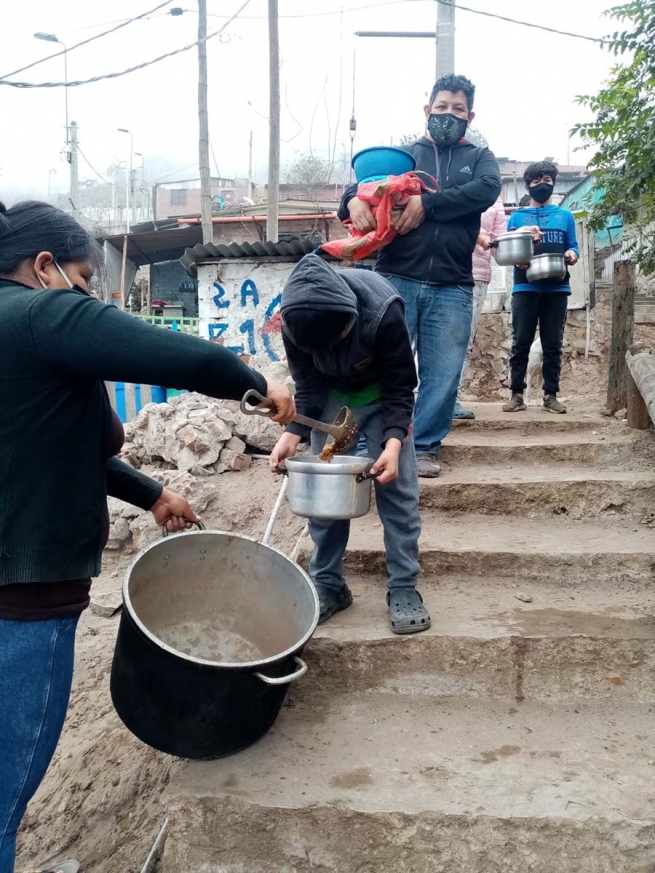Hunger is not a forgotten reality in the world, and even less in Peru. FAO says that "the number of hungry people in the world will reach a record high in 2020. The most affected will be children, especially in southern Africa." In Peru, out of 33 million people, "about 3.1 million suffer from hunger because they are undernourished, a figure that will grow considerably with the pandemic," the FAO report continues.
So what to do? It is a question that Peruvians have asked themselves on more than one occasion in the last 50 years, and they came out with a successful answer: the community pots or kitchens.
The community kitchens is one of those great inventions that go towards solving the hunger problem. In almost all of Lima's poor neighborhoods, in its peripheries and also in the city center, thousands of families organize themselves to eat, cook what is given to them, using some wood to light the fire and recycled materials. "We all remember the sad era of the 1980s, when the poorest of Peru used this method to survive. There were days when we had nothing to eat and we suffered more than anything else for our children …," recalls Fr Raúl Acuña, Director of the "Fundación Don Bosco".
This has also been the experience of thousands of other Peruvians, Venezuelans and also many migrants in recent years.
Today the number of unemployed only in Peru's capital, Lima, is 1.2 million people, according to data from the National Statistics Institute of Peru; and according to ESAN University, it will reach 4.2 million people by the end of the year.
The Salesians of Peru, through the "Fundación Don Bosco", support organized groups of people. The Salesian response continues to be vigorous and tireless. The goal is to take the opportunity to "educate our young and old to citizenship and social commitment. We want to show Peruvian society that there is no authentic Christian life without social commitment, that is, without justice and charity, without service in favor of others," they say.
"If maybe we thought we'd have to go look for where the most vulnerable were, the most needy, the most fragile, the voiceless, the unemployed, the hungry, the discarded ... Well, they found us ..."
-
 Title
Title
Title
Title
-
 Title
Title
Title
Title
-
 Title
Title
Title
Title
-
 Title
Title
Title
Title
-
 Title
Title
Title
Title
-
 Title
Title
Title
Title
-
 Title
Title
Title
Title
-
 Title
Title
Title
Title
-
 Title
Title
Title
Title
-
 Title
Title
Title
Title
https://www.infoans.org/en/component/k2/item/10841#sigProIdf36c662449
Source: "Fundación Don Bosco" (Peru)


